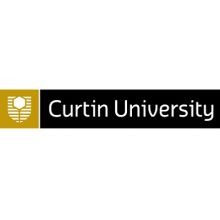Australian universities are ramping up their short course offerings as international education earnings evaporate, but observers fear some are investing too heavily in a time-limited revenue source that narrows their future options.
Undergraduate and postgraduate certificates, created last year as part of Canberra’s Covid relief package, account for at least 10 per cent of several institutions’ teaching grant allocations. Curtin University has been earmarked for more than A$27 million (£15 million) to deliver the courses, followed by the University of Tasmania (A$22 million), Central Queensland University (A$16 million) and Western Sydney, Victoria and Charles Sturt universities (A$12 million each).
Most of these institutions are struggling financially, with Curtin and CQU posting deficits last year. Charles Sturt registered an operating loss in 2019, and Tasmania’s financial problems predate the pandemic.
While short course funding may be a welcome sugar hit to institutional bottom lines, it could be fleeting. The funding is available only for 2021, although observers were awaiting a possible extension in the 11 May federal budget, with the government flagging more short course allocations for private colleges in advance.
Another problem is that short courses may not deliver formally recognised credentials after December. To date, undergraduate certificates have been listed on the Australian Qualifications Framework for only a year.
Andrew Norton, professor in the practice of higher education at the Australian National University, said that short courses could also limit institutions’ future offerings. If students wanted to build on their newly earned credentials, universities would be morally obligated to deliver the associated degrees regardless of their financial viability.
Professor Norton said that, with anecdotal accounts of high dropout rates from the new courses, planning for the associated degrees could be risky. Underestimating dropout rates could leave universities with half-empty classes, while overestimating could prove costly.
“Universities are going to be in a very tight financial situation for some years to come,” he said. “If you’ve got a model which assumes 25 per cent attrition into the second year, and the true attrition is 10 per cent, you’re carrying a lot of unfunded students.”
Consultant Claire Field said that while short courses could deliver an immediate income boost, they risked diverting universities from efforts to cultivate sustainable student flows.
Another risk is that Canberra’s appetite for short courses could fade. While the government insists that the courses’ purpose is to steer students into jobs, the most generously funded programme by far – Tasmania’s undergraduate certificate in sustainable living, which has been allocated more than A$8 million – has been described as a “mix of green thought and gardening tips”.
Tasmania’s chief marketing officer, Craig Barling, said that the course offered good employment prospects. “We have seen strong interest from people seeking a career in sustainability fields,” he said.
The university has limited its income from the course by waiving tuition fees. Mr Barling said that cost was an “inhibitor” for some people and the course’s fee-free status would “reduce barriers to higher education”.
He said that the course had a “clear articulation pathway” for first-time university students. They could progress to Tasmania’s diploma of sustainable living and subsequently a new sustainability major embedded in various bachelor’s degrees.
The next most generously funded short course, Edith Cowan University’s undergraduate certificate in higher education, is geared towards further study rather than employability.
POSTSCRIPT:
Print headline: Short courses ‘carry risks’ as universities in Australia pile in
Register to continue
Why register?
- Registration is free and only takes a moment
- Once registered, you can read 3 articles a month
- Sign up for our newsletter
Subscribe
Or subscribe for unlimited access to:
- Unlimited access to news, views, insights & reviews
- Digital editions
- Digital access to THE’s university and college rankings analysis
Already registered or a current subscriber? Login













